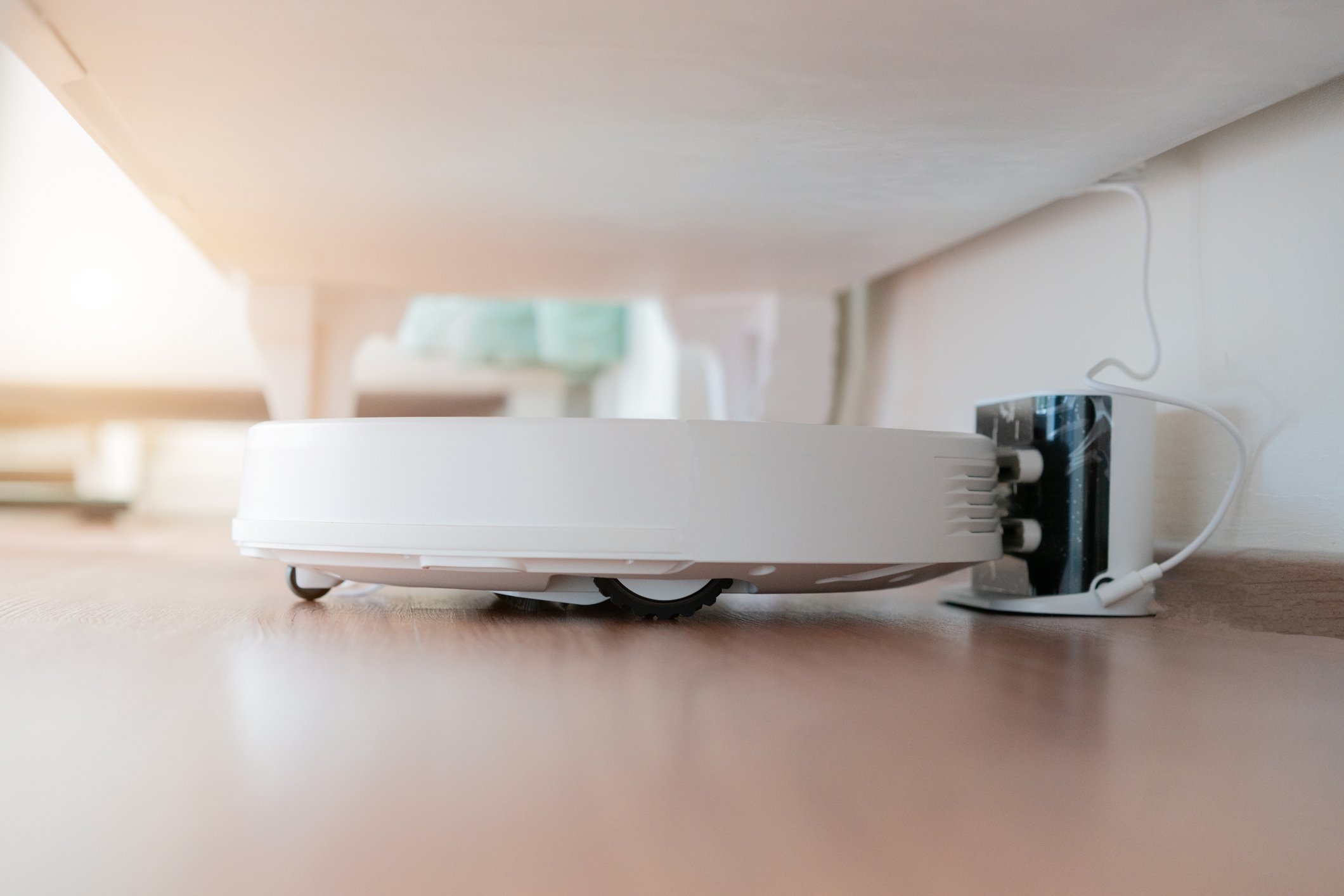Way back in 2013, iRobot (IRBT +0.00%) founder, chairman and CEO Colin Angle mused in an interview with The Verge that robotic butlers were still a decade away. Later that year, when asked by Mashable about the potential threat of Google's acquisition spree of no less than eight up-and-coming robotics companies, Angle added: "Google wants to build the delivery robot. I want to build the machine that opens the door for the delivery robot."
Of course, Google has largely abandoned those robotics aspirations since then. And Angle's first prediction came in the context of discussing iRobot's since spun-off Ava telepresence business. But while we know iRobot invests a large fraction of its resources into research and development (R&D) each year, the home-robotics leader has primarily focused more recently on drastically improving both its Roomba robotic vacuums and Braava floor-mopping bots, as well as preparing for the impending launch of its new Terra robotic lawn mower.
A helping hand
If comments from Angle this week are any indication, however, his original timeline for the rollout of robotic butlers might be closer than you think. Speaking to Bloomberg at this year's Consumer Electronics Show in Las Vegas, Angle teased that his company is working on "a household helper that will have arms that could load dishes, pick up clothes, or bring food from kitchen to table."
That said, Angle also cautioned that iRobot likely won't begin selling its "household helper" bot for at least another five years as the technology exists only in prototypes of the arms within Robot's R&D labs. But even if iRobot were to shoot for the 2025 commercialization of such a product, it would still only mean missing Angle's original (and obviously informal) 2023 prediction by a couple of years.

IMAGE SOURCE: GETTY IMAGES
Why now?
What's more, iRobot didn't simply acquire its robotic-arm technology. Rather, Angle says it was developed under iRobot's old military-centric defense and security (D&S) segment. When iRobot divested the D&S segment in 2016, it astutely held on to (pun intended) the assets for its robotic arms.
That also raises the question: Why now?
According to Angle, iRobot wasn't sure how to "adapt the technology for mainstream use, [...] but new advancements in computer vision and the ability for robots to map out a person's home make such devices possible."
Indeed, in a blog post earlier this week, Angle elaborated on iRobot's vision for implementing truly smart homes, namely by taking advantage of Roomba's vision-based mapping capabilities and spatial awareness of its physical surroundings. If iRobot is able to position Roomba as a central "unifying intelligence" for smart-home devices, it could enable endless possibilities for those devices to streamline the smart-home user experience.
As iRobot uses its computer-vision technology to perfect its floor-mapping capabilities, a next logical step might be to build more detailed maps of surrounding objects that could be autonomously manipulated by a robotic arm -- like a refrigerator handle, your dirty dishes, or a pile of laundry.
Make no mistake: If iRobot manages to commercialize an effective robotic butler solution to meet that end, it could open the door to massive incremental growth.





